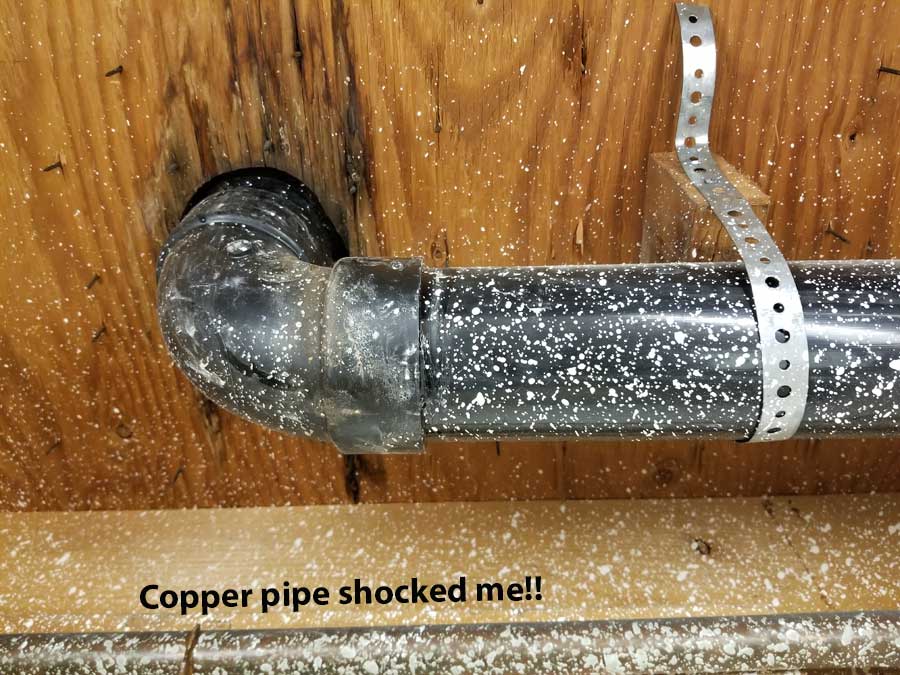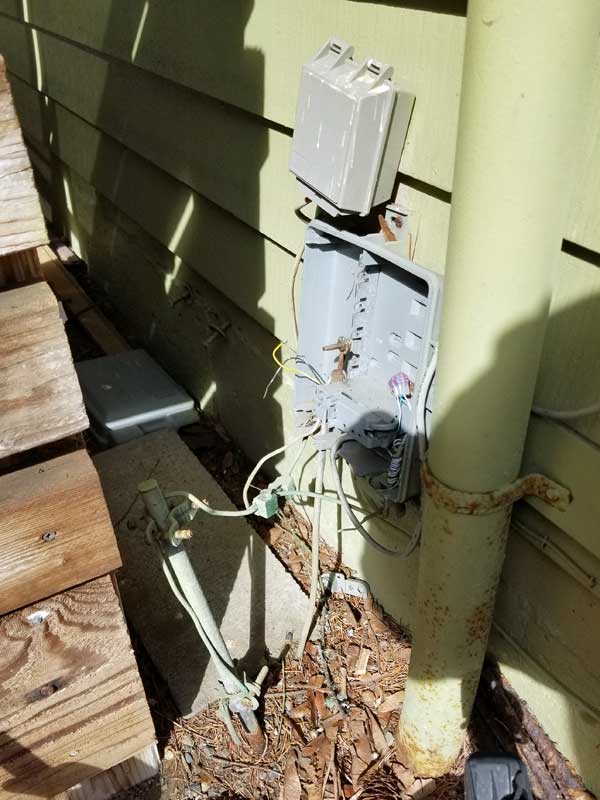I was looking at a 3" ABS drain for a toilet in the basement, standing on the plastic toilet seat, accidently touched the 1" copper pipe and WOW!!
I got shocked.

The copper pipe right here.
And then I went outside to check the grounding on the panel, just one rod in the ground, and nudging it with a plastic bucket noticed that it was loose in the dirt.

The homeowner will have that grounding fixed before I come out again. Both her and her daughter had already been shocked doing other things.
It's time to check into it. For sure!
I got shocked.

The copper pipe right here.
And then I went outside to check the grounding on the panel, just one rod in the ground, and nudging it with a plastic bucket noticed that it was loose in the dirt.

The homeowner will have that grounding fixed before I come out again. Both her and her daughter had already been shocked doing other things.
It's time to check into it. For sure!
